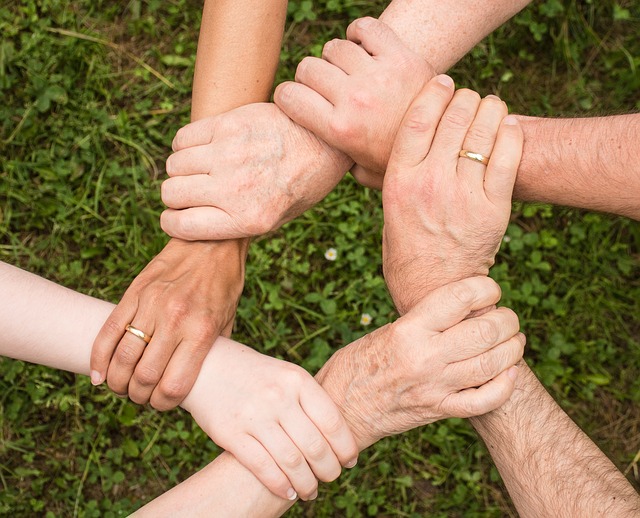n a recent interview podcast, Tami Simon of Sounds True interviewed Michael Singer, author of The Untethered Soul Guided Journal: Writing Practices to Journey Beyond Yourself and The Surrender Experiment: My Journey into Life’s Perfection. Michael made his teachings available in the form of a series of podcasts covering his perspective on spirituality and being in the moment. The podcast I want to focus on in this post is one Michael titled, Giving Meaning to the Time Between Your Birth and Your Death. Michael offers several insights that can enable us to experience the moment, live life fully and joyfully and realise what he terms “spiritual growth”. His insights revolve around our “acquisitions”, our conditional “okay inside” mindset and our tendency to be “bothering” about life instead of experiencing it.
Our tendency to want to acquire
Michael’s salient point here is that whatever we acquire with our short life on this planet, we cannot take with us at our death – whether it be our house, money, car, marriage, status or personal looks. Yet we spend so much of our lives trying to acquire more. We look to have a bigger house in a better location with more comforts; to make more money to be able to purchase the things that we desire to own; to have a newer car with more comforts and features. As Michael points out, these desired “acquisitions” do little to resolve the issue that we are “not okay inside” – they do not provide lasting satisfaction or happiness. The reality is that we spend much of our life in fruitless pursuit of what we want to acquire – none of which we can take with us when we inevitably die.
Our conditional “okay inside” mindset
Often we believe that we will be “okay inside” if our life was different to what it is. If we were someone who was brighter, more educated, better looking or married to someone who was eminently flexible and available. We are not okay because we cannot accept “what is”. He points out that we carry a lot of “garbage inside” that impacts our experience of the world. Some of this is related to our expectations and our perception of the expectations of others. Part of it relates to a false belief about what brings happiness and fulfillment. He makes the humbling point that we are fortunate to live on earth with all its richness in nature, people, places and beauty– even though it is a speck of dust in a vast universe that is mind-boggling in its magnitude.
Being “bothered” by life instead of experiencing it
Michael maintains that a lot of our ”not-okayness” relates to the fact that we let a lot of life “bother us”. We are bothered by the slowness of the car in front of us, by the lack of our favourite dessert in the supermarket, by the annoying habits of our partner, by the lack of comfort of a chair, by the fact that a restaurant meal did not turn out as well as expected, by… Because of our “bothered” frame of mind, we do experience life as it is. Michael maintains that each experience has personal growth potential – we can learn and grow through every experience, no matter how small.
We just need to “work on ourself” and recognise that we are bringing to each situation a pre-set idea of how it should be. We seek to have others be like we want them to be so we don’t have to change the way we are. We become locked into our way of doing things and stay like we are, unwilling to evolve and be what we are capable of being.
Experience, according to Michael, is a teacher but often we do not want to learn the lesson that experience brings. He argues that “every moment is designed for our growth” and part of the meaning of life is to realise this growth by “getting rid of why we are not okay”. Often current experience can be a catalyst for memories of past bad experiences that we linger over and sometimes build resentment about. Michael argues that these can leave a “scar” unless we learn to let them go – so much of what he suggested related to “letting go”. If we can let go of the “garbage inside”, we can truly experience joy in the moment and free ourselves to feel the beauty that surrounds us and our own openness to life and living.
Reflection
Michael’s podcasts offer real insights into the ways that we block our own happiness and the realisation of our true growth and potential. He offers an online course through Sounds True that inculcates his teachings and cultivates the mindset and habits that enable us to be “okay inside” so that we can experience the world as a place of growth and joy. His course, Living from a Place of Surrender: The Untethered Soul in Action, incorporates video sessions and journalling for self-reflection.
Throughout his podcast, Michael illustrated his points by making frequent reference to tennis, my favourite sport. He suggested that the experience of playing tennis has growth potential embedded in it. If we make a mistake and hit the ball into the net, we could rail against the wind, the court conditions, the unpredictability of our opponent’s game or the tension of our racquet strings or become bothered by what others might think of us and our competence as a tennis player.
Alternatively, we could experience gratitude for the opportunity to play tennis (which millions of people in the world do not have); appreciation that we can run and hit the ball (which many people in the world can’t do); acceptance that mistakes are an integral part of playing tennis (despite how competent we are at tennis); wonder at the capacity of the human mind to rapidly process all the information required to execute a tennis shot; and learning from what we did wrong in trying to play the shot (positioning, stroke choice, speed and direction of our tennis shot).
As we grow in mindfulness by working on ourselves through meditation, self-reflection and insight courses, we can be more open to experience and less bothered when things don’t turn out as we expect them to. We can feel joy instead of disappointment, gratitude instead of envy and wonder instead of feeling uninspired.
___________________________________________
Image by Antonio López from Pixabay
By Ron Passfield – Copyright (Creative Commons license, Attribution–Non Commercial–No Derivatives)
Disclosure: If you purchase a product through this site, I may earn a commission which will help to pay for the site, the associated Meetup group, and the resources to support the blog.









